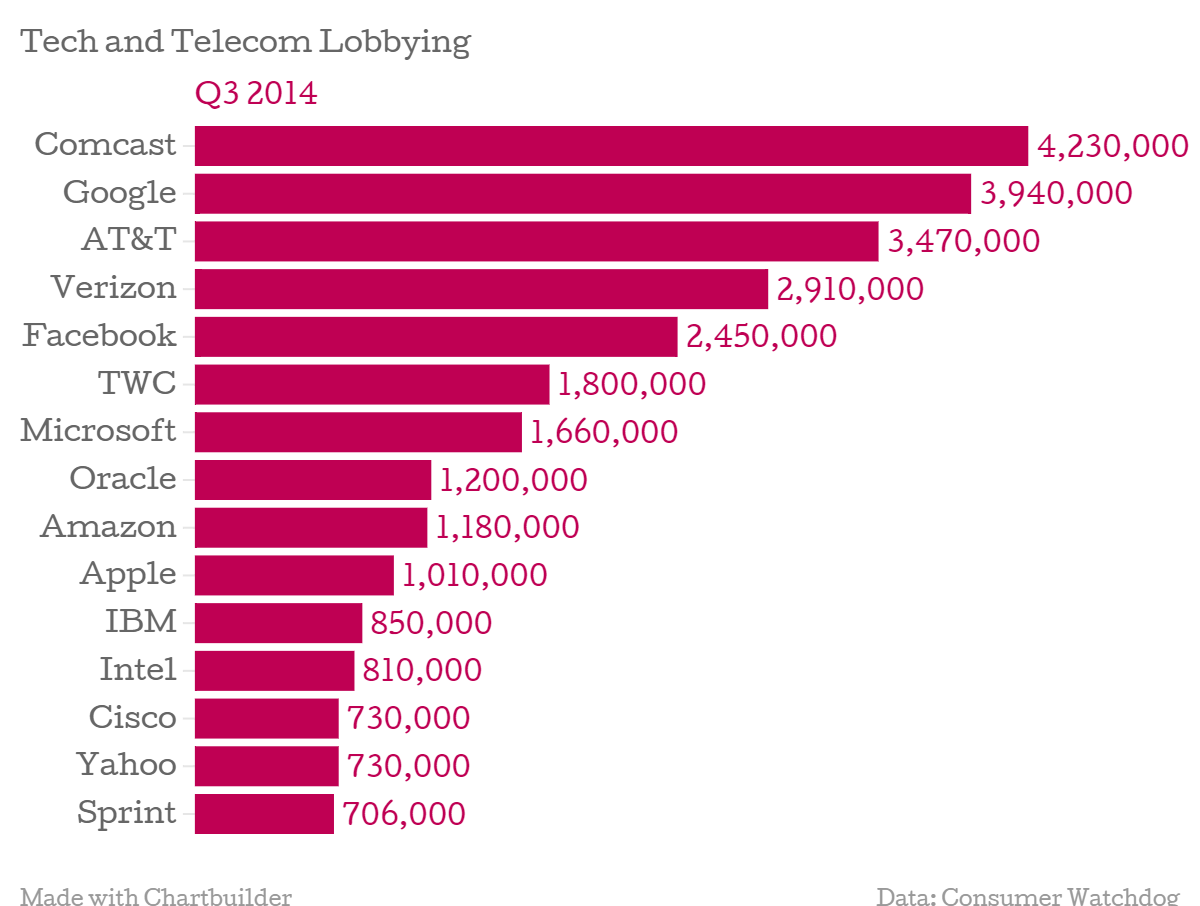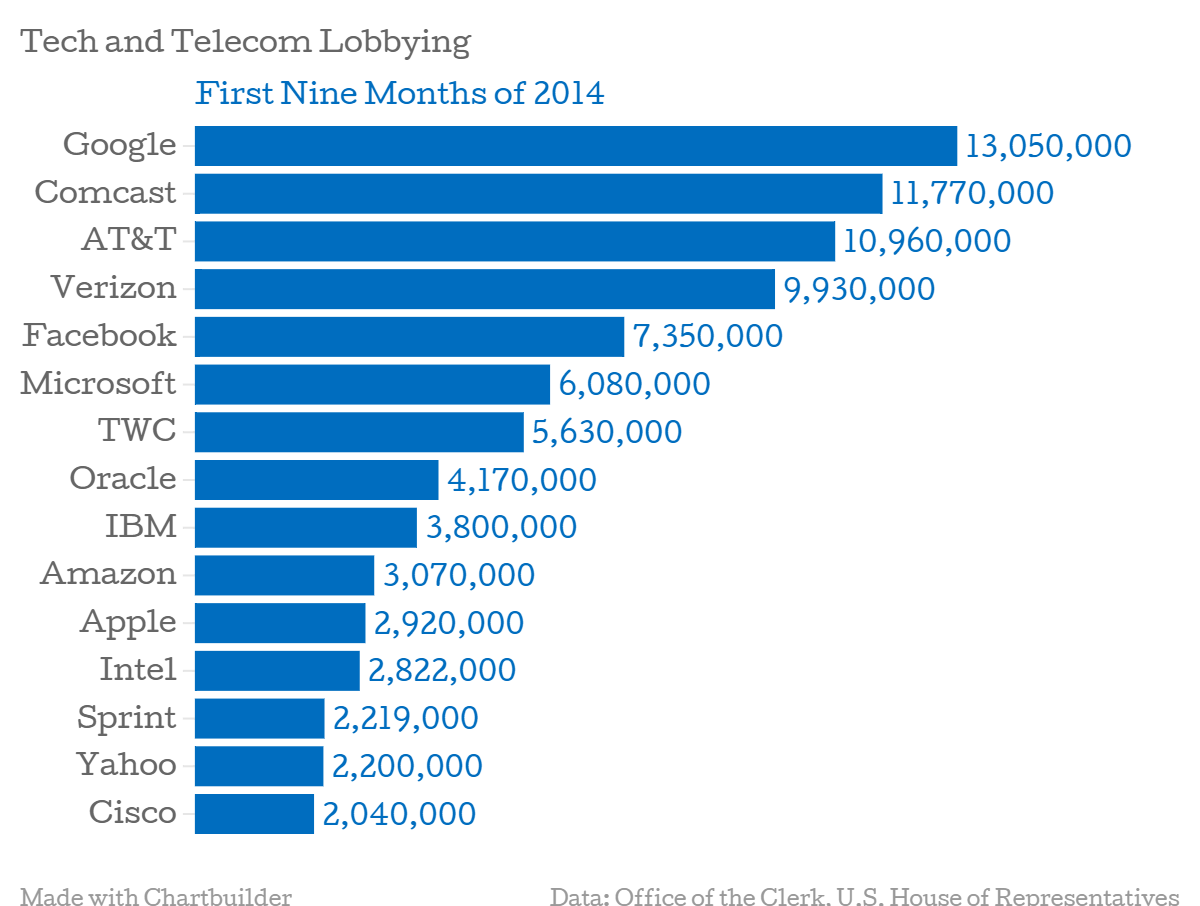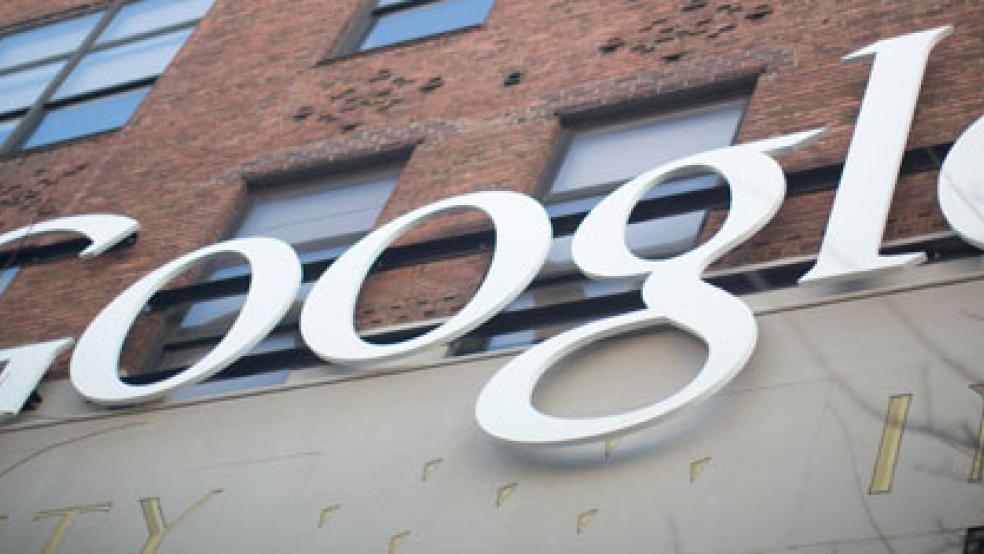Silicon Valley keeps playing the D.C. game. Tech and telecom giants including Google and Facebook spent millions on political lobbying in the three-month period from July to September, according to data released Tuesday.
Google spent nearly $4 million on its efforts to win favor with lawmakers, up 17 percent over the same period last year (but down from roughly $5.3 million last quarter). Among major tech-related companies only Comcast spent more last quarter. The cable giant, of course, is trying to win approval for its $45 billion mega merger with Time Warner Cable.

Over the first nine months of 2014, though, Google has spent $13 million on lobbying, more than any other tech company. Comcast, by comparison, has spent about $11.8 million, AT&T has doled out roughly $11 million, and Facebook has spent $7.35 million.
Related: A Facebook Exclusively for the Super Rich
Google’s ramped up spending over the last quarter relative to the same period in 2013 makes it a bit of an outlier in the tech sector. Nine of the 15 tech companies monitored by Consumer Watchdog, an advocacy group, dialed back their lobbying spending last quarter compared to the third quarter of 2013. Facebook was among the six that increased their lobbying efforts, upping third-quarter spending 70 percent, from $1.44 million last year to $2.45 million this year. Amazon’s lobbying bill, at $1.18 million, reached seven figures in a quarter for just the second time, as the retailer upped third-quarter lobbying by 51 percent over 2013.

Related: Why Your Tax Dollars Are Funding Research for Origami Condoms
What are the tech giants buying with that money? “Businesses don’t spend big bucks unless they think that they’re going to get something for it,” says John M. Simpson of Consumer Watchdog “Sometimes it’s as much about what isn’t being passed as what is being passed.”
Google’s most recent filing indicates it has lobbied politicians on a host of issues, from cybersecurity and privacy issues to intellectual property enforcement and patent law. It has also lobbied lawmakers on trade agreements like the Trans-Pacific Partnership, international tax reform, immigration policies, wind power, health IT and data policies, and “unmanned aerial vehicle technology,” or drones.
Top Reads from The Fiscal Times:


